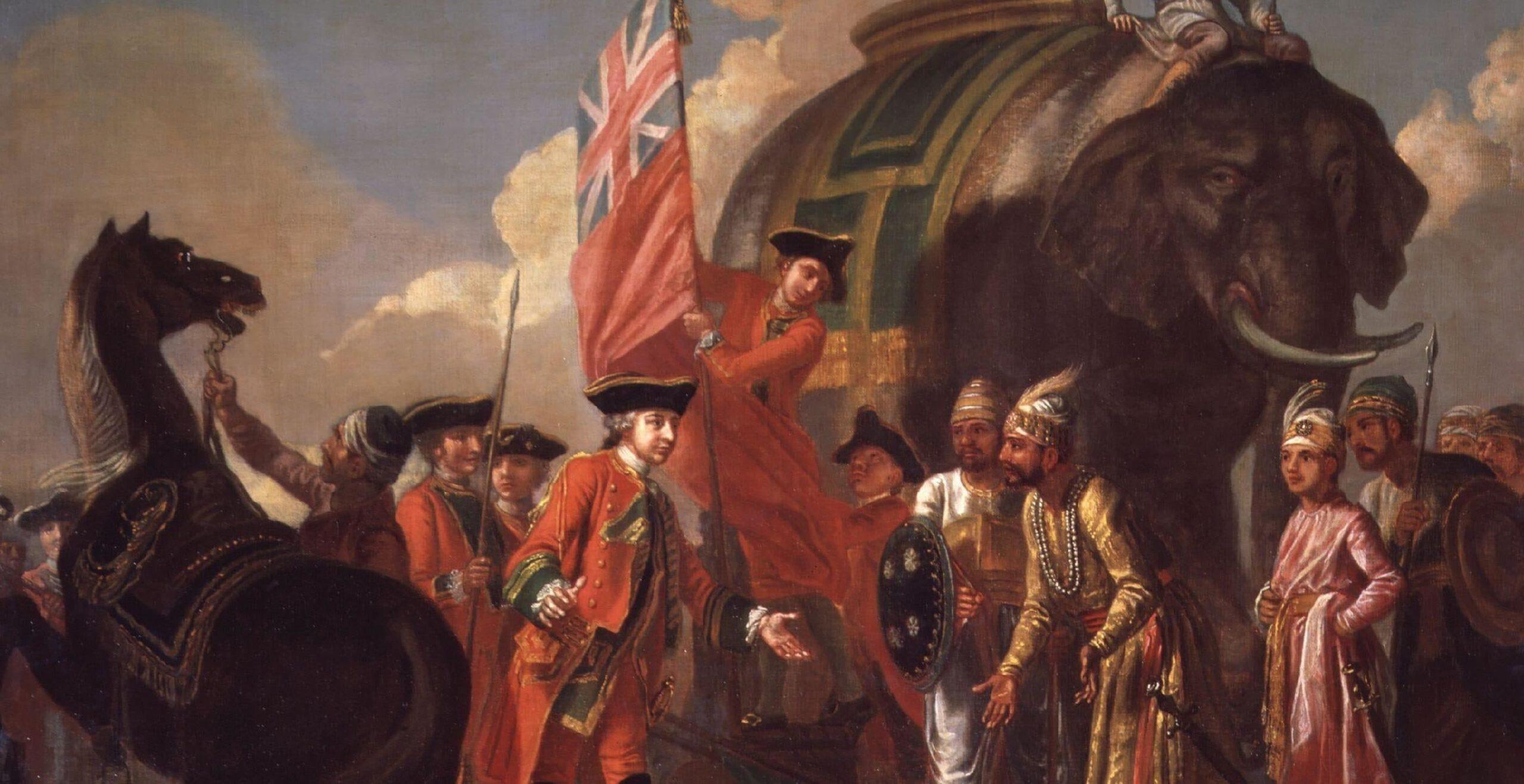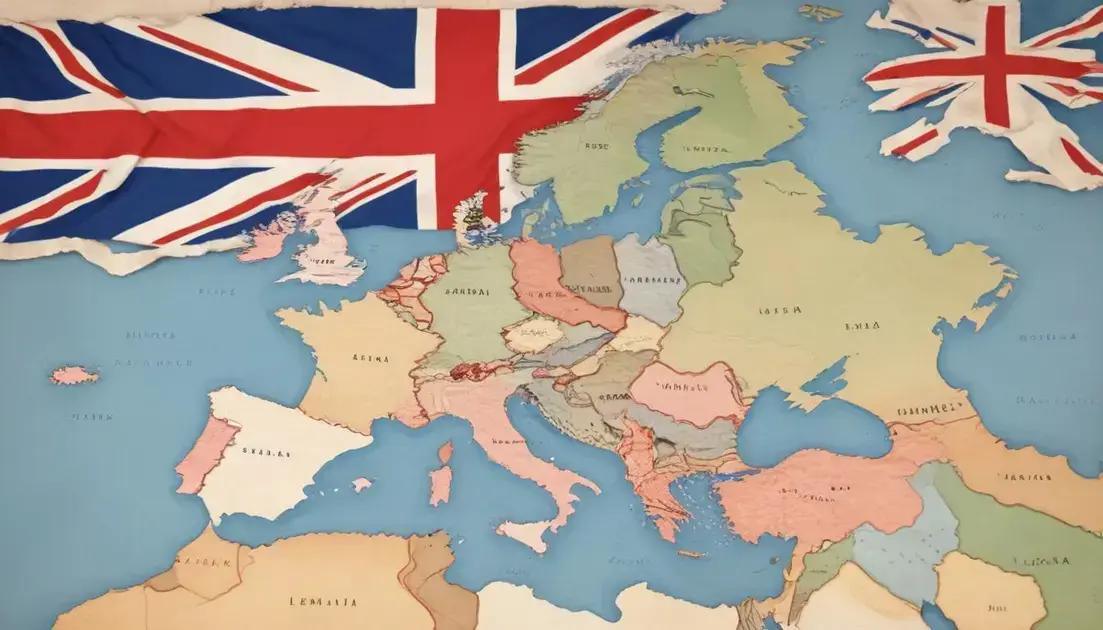
The Rise of the British Empire: Conquest and Influence
The British Empire, a colossus of history, remains one of the largest and most influential empires ever known. At its zenith, it controlled a quarter of the Earth’s landmass and a comparable portion of its population. Its rise wasn’t a sudden eruption but a gradual, centuries-long process fueled by conquest, shrewd alliances, and unparalleled economic dominance. This exploration delves into the multifaceted factors that propelled the British Empire’s ascent and examines its enduring, and often controversial, impact on the global landscape.
I. Early Seeds: Maritime Prowess and Mercantilist Ambitions
The empire’s foundations were laid not on grand pronouncements of dominion, but in the incremental expansion of trade and colonization, beginning in the 16th century. Figures like Sir Francis Drake and Sir Walter Raleigh, driven by the spirit of exploration and the lure of riches, established vital trade routes and claimed territories in North America, planting the seeds of future imperial growth. The establishment of the British East India Company in 1600 proved pivotal. Initially focused on establishing lucrative trade relationships with Indian kingdoms, the Company gradually, and often through dubious means, amassed considerable political and territorial control over vast swathes of the Indian subcontinent. The British Crown’s tacit (and often active) support for these ventures laid the essential groundwork for future imperial expansion.
Competition from other European powers – Spain, France, and the Netherlands – was fierce. Each nation vied for control of lucrative trade routes and colonial possessions. Britain’s response was to invest heavily in its navy, transforming it into a formidable instrument of power projection. The Royal Navy’s superior strength became a critical factor in securing British interests worldwide and safeguarding its burgeoning trade networks. The Seven Years’ War (1756-1763), a global conflict fought across multiple continents, proved to be a watershed moment. Britain’s decisive victory over France solidified its position as a dominant global force, significantly expanding its territorial holdings and influence. The acquisition of vast territories in North America, significantly impacting the future United States, and the strengthening of its presence in India, demonstrated the burgeoning power of the British Empire.
II. The Age of Expansion: Industrial Might and Imperial Designs
The 18th and 19th centuries witnessed an unparalleled acceleration in British imperial expansion. Fueled by a burgeoning population, a thirst for resources, and the transformative power of the Industrial Revolution, Britain established colonies across North America, Africa, Asia, and the Pacific. The methods employed varied – conquest, treaties, and often coercive economic pressure – but the ultimate goal remained consistent: the expansion of British power and influence.
The Industrial Revolution provided an unprecedented advantage. British factories, powered by new technologies and fueled by readily available resources from its colonies, churned out goods more efficiently and cheaply than any competitor. This industrial might not only fueled economic growth at home but also enabled the empire to dominate global markets, further entrenching its economic and political power. The resulting surplus capital fueled further investment in infrastructure, exploration, and military expansion, creating a self-reinforcing cycle of imperial growth.
However, this period is also characterized by immense brutality and exploitation. The colonization of Australia, for instance, involved the systematic dispossession and marginalization of the Aboriginal population, resulting in devastating cultural and societal consequences. The British East India Company’s rule in India, while leading to some infrastructural advancements, was largely marked by widespread poverty, famine, and the systematic dismantling of existing power structures. The imposition of British laws and administrative systems often disregarded the needs and cultural contexts of the colonized populations. This led to widespread unrest and resentment, which would later fuel nationalist movements and independence struggles.
III. Imperial Rivalries and the Specter of Global Conflict
As the British Empire continued its expansion, tensions with other European powers, most notably France and Germany, escalated. These rivalries were complex and multifaceted, involving competing colonial ambitions, economic interests, and the increasingly assertive nationalism of other European nations. Britain responded strategically by forming alliances with other powerful nations, including the United States and Japan, creating a complex web of international relationships designed to counterbalance its rivals and maintain its dominance. This intricate system of alliances and counter-alliances ultimately contributed to the outbreak of World War I, a global conflict that pitted the British Empire against the Central Powers.
The British Empire played a decisive role in the war effort, providing substantial manpower, resources, and financial support to the Allied cause. The war’s outcome confirmed Britain’s status as a major world power, though at a tremendous human and economic cost. The war, however, also marked a turning point. The devastation and the growing strength of nationalist movements within its colonies exposed the vulnerabilities of the empire and foreshadowed its eventual decline. The war highlighted the increasing strains on maintaining an empire of such vast geographical scale and diversity. The cost of maintaining it, both financially and in terms of human lives, became increasingly unsustainable.
IV. The Legacy of Empire: A Multifaceted and Contested Narrative
The legacy of the British Empire is undeniably complex and profoundly multifaceted, defying simple categorization into “good” or “bad.” While the empire undeniably facilitated the transfer of goods, ideas, and technologies across the globe, contributing to modernization and economic growth in some regions, its impact was far from uniform. The introduction of British infrastructure, such as railroads and communication systems, arguably spurred some economic development in certain colonies. The dissemination of the English language continues to shape global communication and commerce. British legal and political systems, notably the parliamentary system and common law, were adopted by numerous former colonies, even if often adapted to local contexts.
However, this positive narrative must be weighed against the immense human cost. The empire’s extractive economic policies frequently prioritized British interests above those of the colonized populations, leading to widespread poverty, inequality, and environmental degradation. The systematic oppression of indigenous populations, the exploitation of resources, and the imposition of foreign cultures and values left deep-seated scars that continue to resonate in many post-colonial societies. The legacy of slavery and forced labor continues to impact economic and social structures. The arbitrary drawing of borders, often ignoring existing ethnic and cultural divisions, created long-lasting political instability in various regions.
The Commonwealth of Nations, a voluntary association of 54 countries, most of which were formerly part of the British Empire, stands as a testament to the empire’s enduring, if transformed, influence. This organization promotes cooperation and cultural exchange among its members, albeit with varying degrees of success in addressing the historical injustices of imperial rule.
V. Reappraising the Past: A Continuing Debate
In recent years, there has been a significant re-evaluation of the British Empire’s history, moving beyond simplistic narratives of either unqualified triumph or utter condemnation. Historians and scholars now strive for a more nuanced understanding of the empire’s complexities, acknowledging its brutality alongside its unintended contributions. This renewed scrutiny focuses on the empire’s role in perpetuating global inequalities, its contribution to climate change through resource extraction, and the long-term economic and social consequences of its policies. There is growing debate regarding reparations for past injustices and a more equitable sharing of resources and opportunities.
The ongoing discussion surrounding the empire’s legacy underscores the need for critical engagement with historical narratives. It is essential to avoid simplistic generalizations and acknowledge the vast diversity of experiences within the empire itself. Understanding the perspectives of colonized populations is crucial in developing a more complete and just understanding of the past. The impact of the empire on language, law, and political systems requires a nuanced assessment that accounts for both positive adaptations and the enduring negative consequences.
VI. Enduring Influence: A Global Legacy
Despite its dissolution, the British Empire’s influence pervades the modern world. The ubiquity of the English language, a product of centuries of imperial expansion, speaks volumes about the empire’s enduring global impact. English serves as the primary language of international commerce, diplomacy, and popular culture, reflecting the empire’s historical power projection. British cultural exports—literature, music, and film—continue to hold immense global appeal, influencing artistic trends and societal norms. The spread of British cultural values, while often celebrated, has also sparked debates about cultural imperialism and the suppression of local traditions.
The structures of governance in many former colonies continue to reflect the impact of British imperial administration. While independent nations may have adopted parliamentary systems or common law principles, adapting them to suit their specific needs and circumstances, the foundation of these systems lies in the British imperial legacy. The economic connections between the UK and its former colonies remain significant, although the nature of these relationships is frequently a subject of ongoing renegotiation and contestation. The City of London, a global financial hub, remains a powerful symbol of Britain’s enduring economic influence, which is often debated in the context of neo-colonialism and economic dependency.
The legacy of the British Empire demands continuous examination and reinterpretation. Only through a comprehensive and nuanced understanding of its multifaceted consequences can we navigate the complexities of the modern world and strive toward a more equitable and just future. The ongoing dialogues about reparations, the reconciliation of historical injustices, and the acknowledgment of diverse perspectives are essential steps in this ongoing process. The dismantling of the empire was not an immediate resolution, but a gradual process spanning decades. Its multifaceted consequences, both positive and overwhelmingly negative, continue to shape our globalized world. The study of its legacy provides indispensable insight into the complexities of power, globalization, and the ongoing struggle for historical justice.


